History Of Comics
Patriotism in Comics
by Joshua H. Stulman
Many people believe that Super Heroes were a product of the Second World War. While we remember great patriotic covers of Superman with the American flag and Batman and Robin hawking liberty bonds, the uniqueness of the American superhero actually predates the United States involvement by over 3 years.
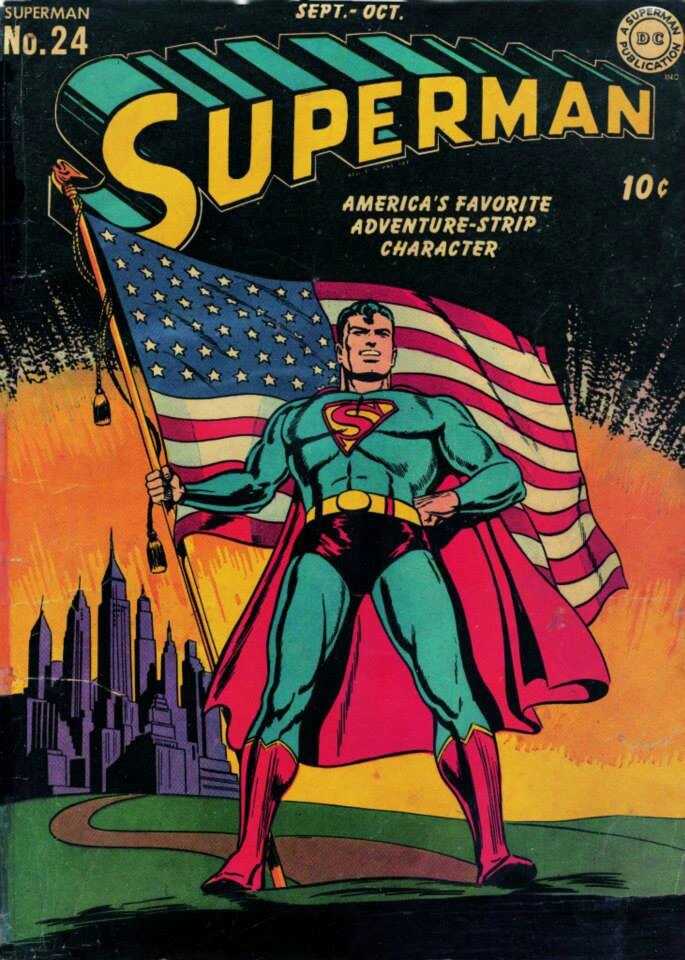
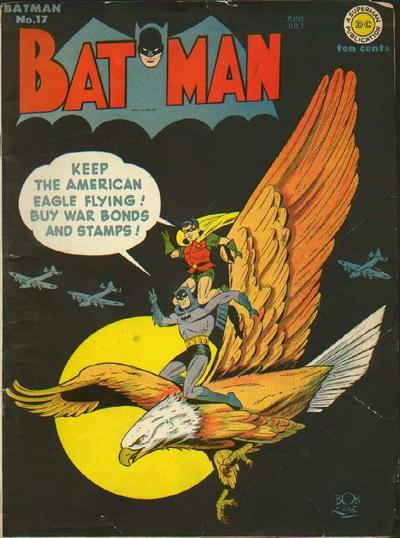
Superman, the very first superhero, debuted in Action Comics (June, 1938) by Jerry Siegel and Joe Shuster. From the beginning, Superman displayed his patriotic sentiments front and center. In his very first story, Superman dealt with government corruption and due process for the wrongfully condemned. Other early stories that same year included topics like corrupt ammunition profiteering and social justice causes like safety conditions in coal mines, as well as housing projects. The commercial success of Superman kick-started the new genre of adventure comics, many of which borrowed heavily from the Superman template including his social justice mission steeped in American values. While Europe was heading towards war, comic artists were promoting American ideals of freedom and liberty with overtly patriotic themed heroes like Irv Novick’s the Shield (Pep Comics # 1 Jan. 1940) and Will Eisner’s Uncle Sam (National Comics # 1 July, 1940).
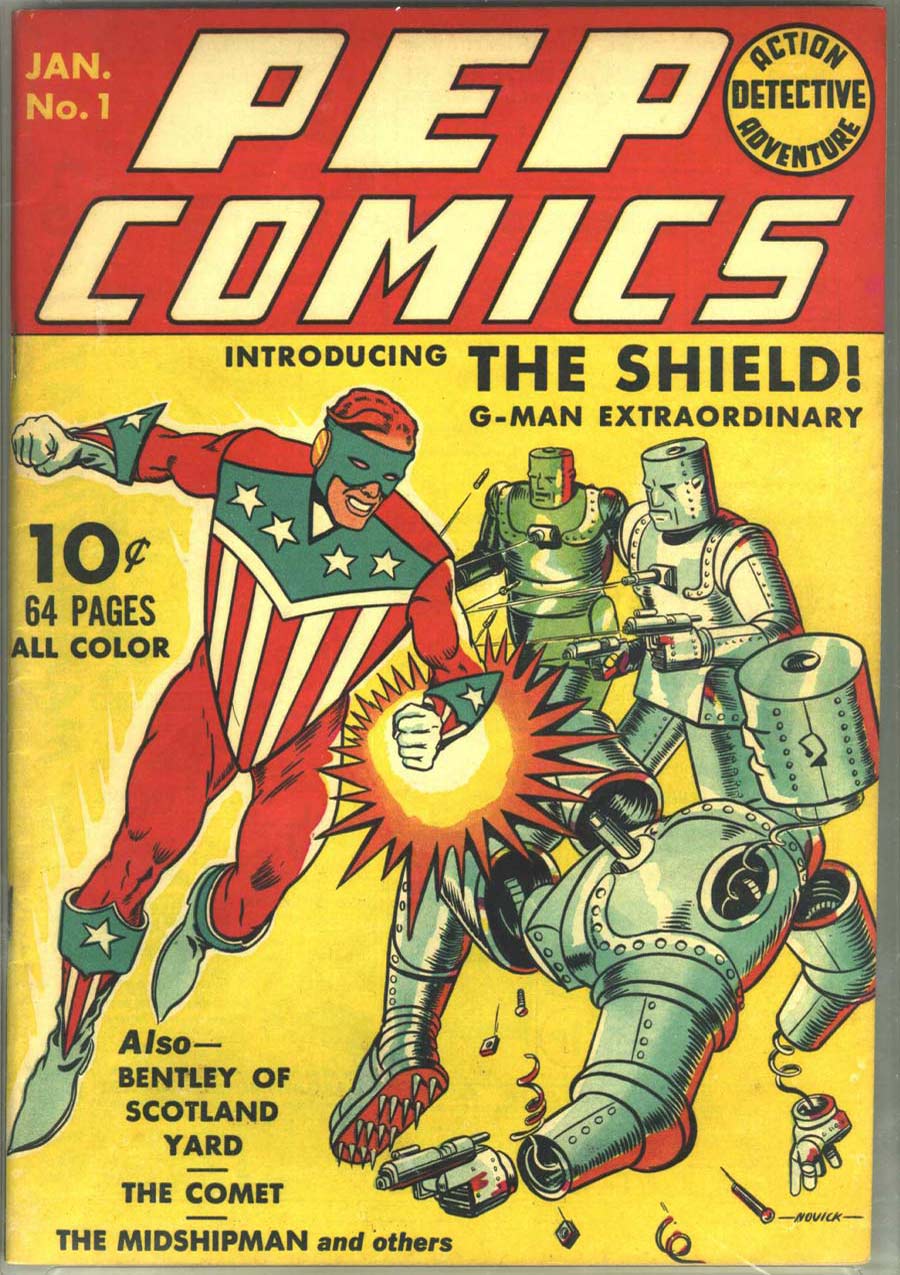
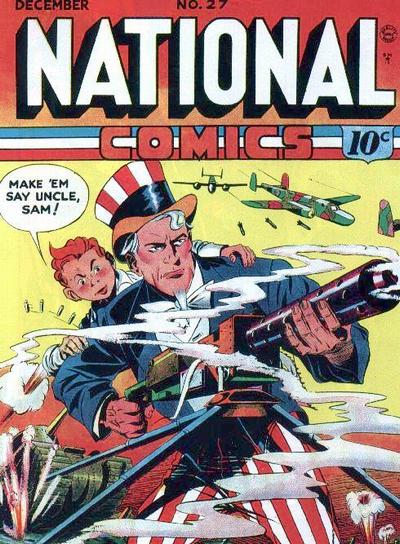
So why was America so prevalent in comics even before World War II?
Many of the founding comic creators were first generation Jewish immigrants. Their parents came to America to escape severe persecution stemming from the profound Anti-Semitic sentiments in Europe at the turn of the century. In Eastern Europe and Russia, Jews saw their possessions confiscated and hometowns burned to the ground by the Czar and later the Communists. Immigration to America promised them a new life and opportunity based on the simple ideal of liberty.
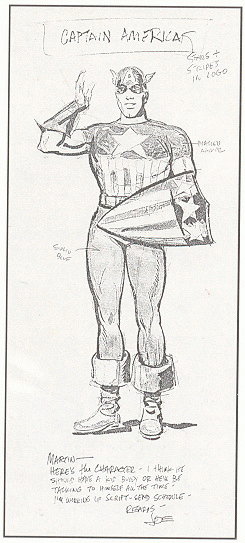
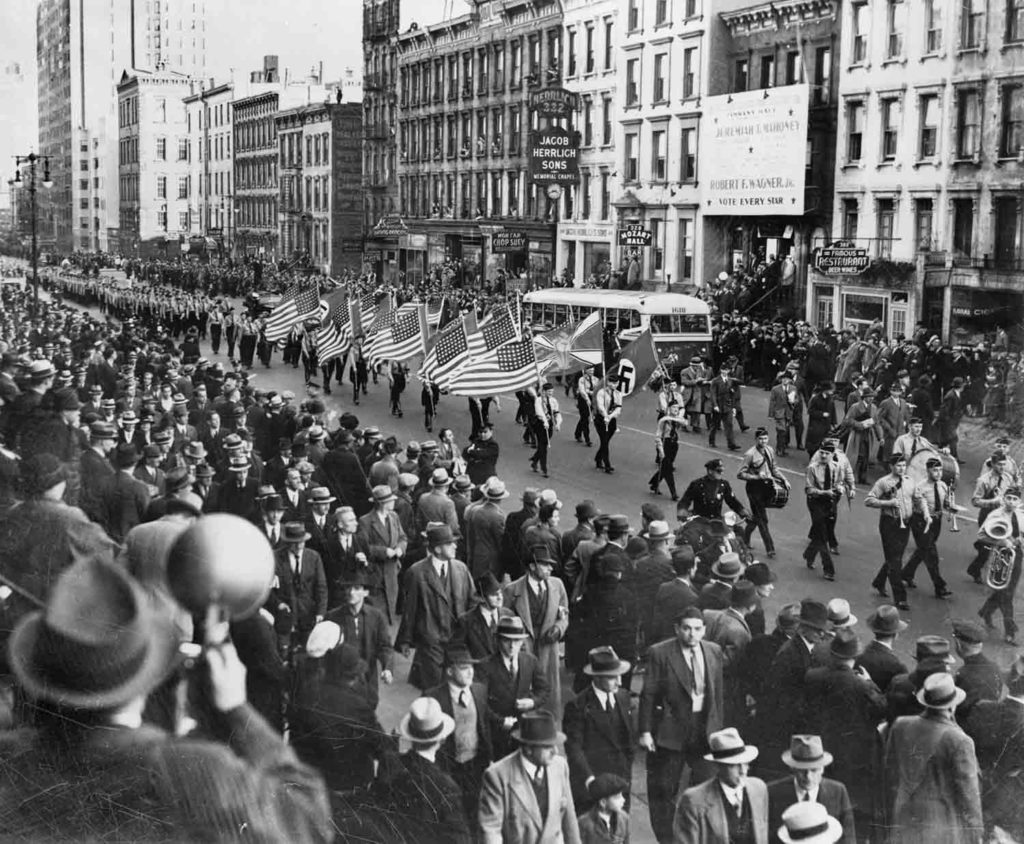
Although even in America, Anti-Semitic feelings barred many of the Jewish artists from gaining employment in the high profession of journalism and newspaper graphic arts. Many found work in the early comic industry, which was supported by Jewish publishers. These young Jewish artists had a profound love of America and the promise of a better life than their parents had in Europe. Many were outspoken and proud about America’s promise and celebrated it in art, literature, and even in comics.
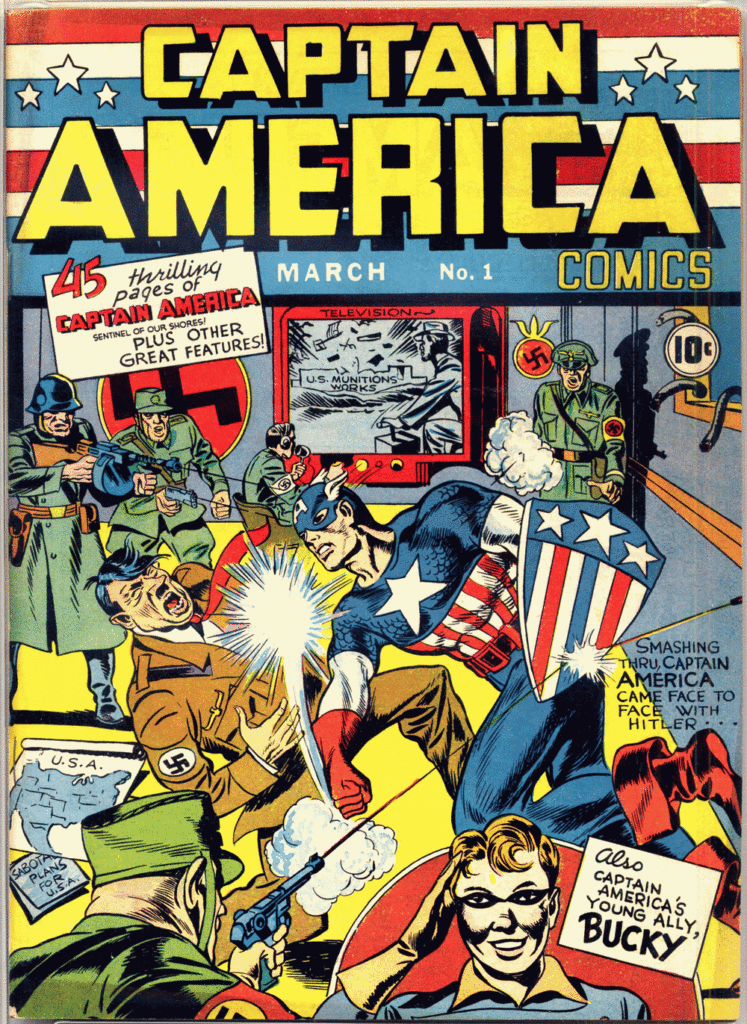
With American abstention in the growing war remained a topic of debate, creators Joe Simon and Jack Kirby made their feelings known with the creation of Captain America (Captain America Comics # 1 March, 1941). The cover famously featured Cap punching Hitler in the face. This shocking image was the first with many copycats to follow and predates the U.S.A.’s entry by over a half year. This was a brave act for both Marvel Comics and the Simon and Kirby team as the American Nazi bund was still strong in New York City. Mayor Fiorello La Guardia supported Simon and Kirby’s effort and dispatched a special detail for their protection so they could continue to produce the comic book.
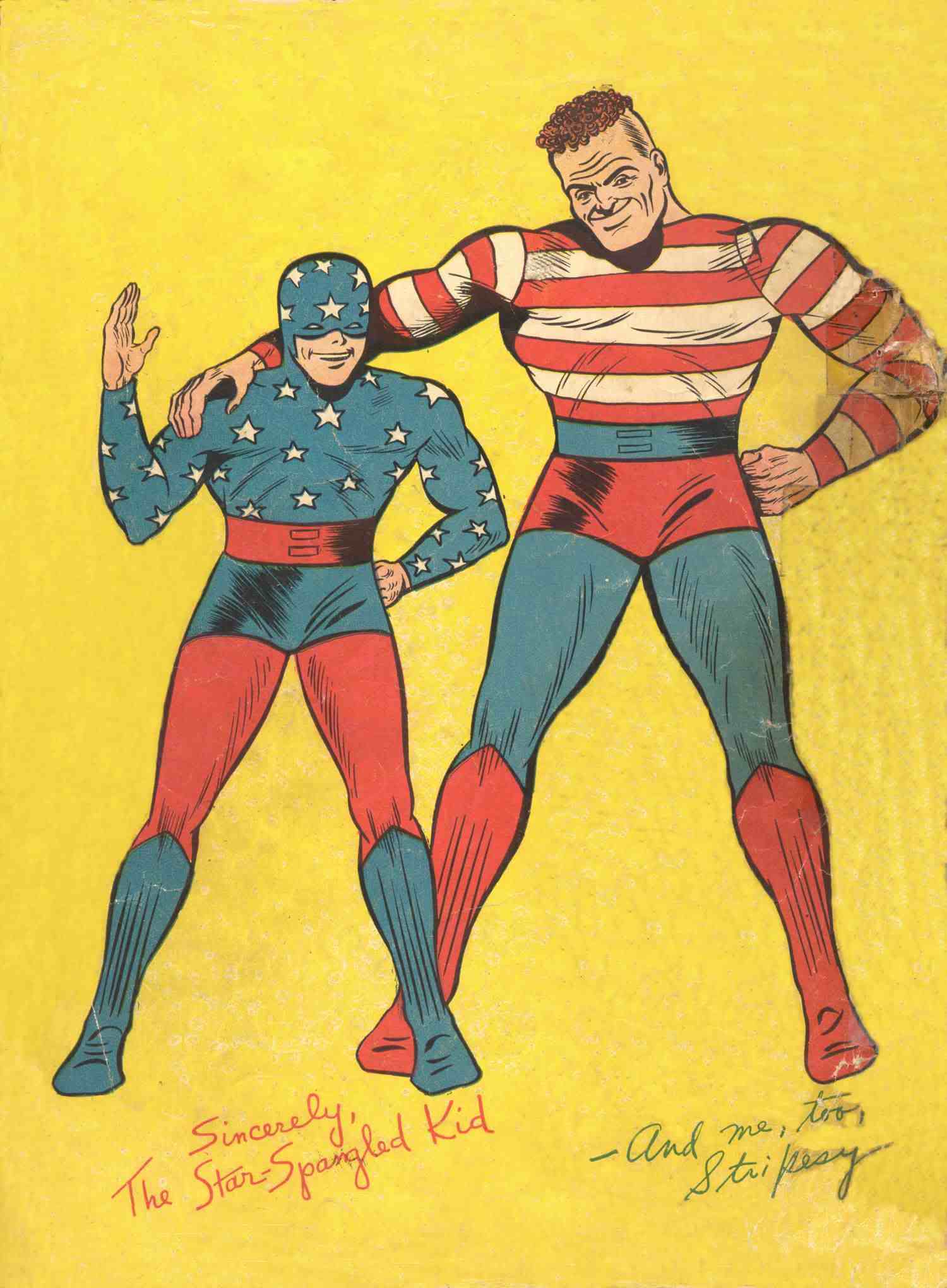
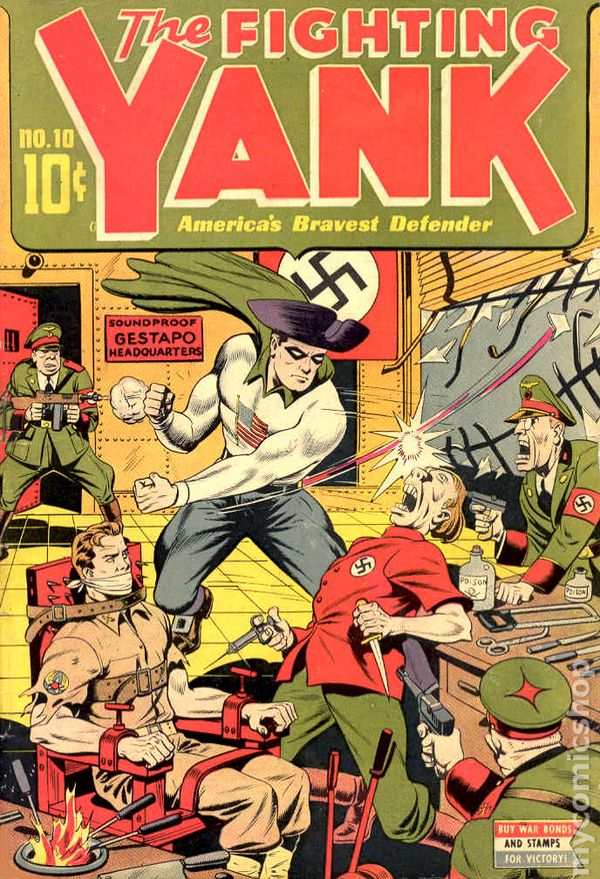
As America veered closer to the war, many patriotic super heroes emerged. Here is a sampling of some of these characters: The Fighting Yank, Miss America, the Star Spangled Kid and Stripsey, and of course Wonder Woman (All Star # 8 Oct. 1941).
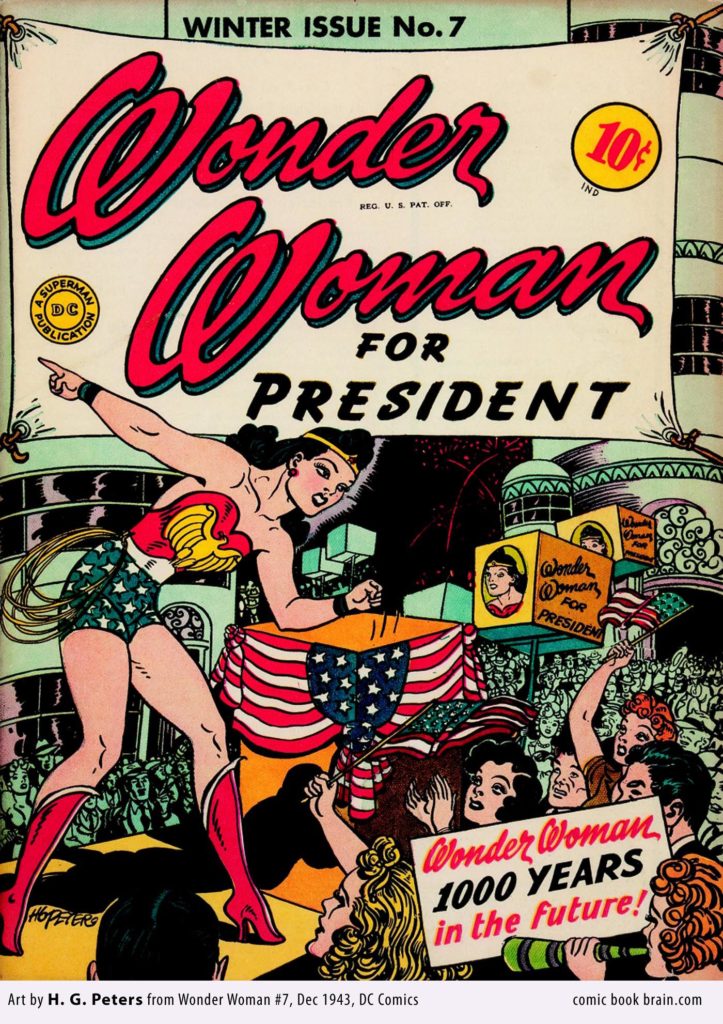
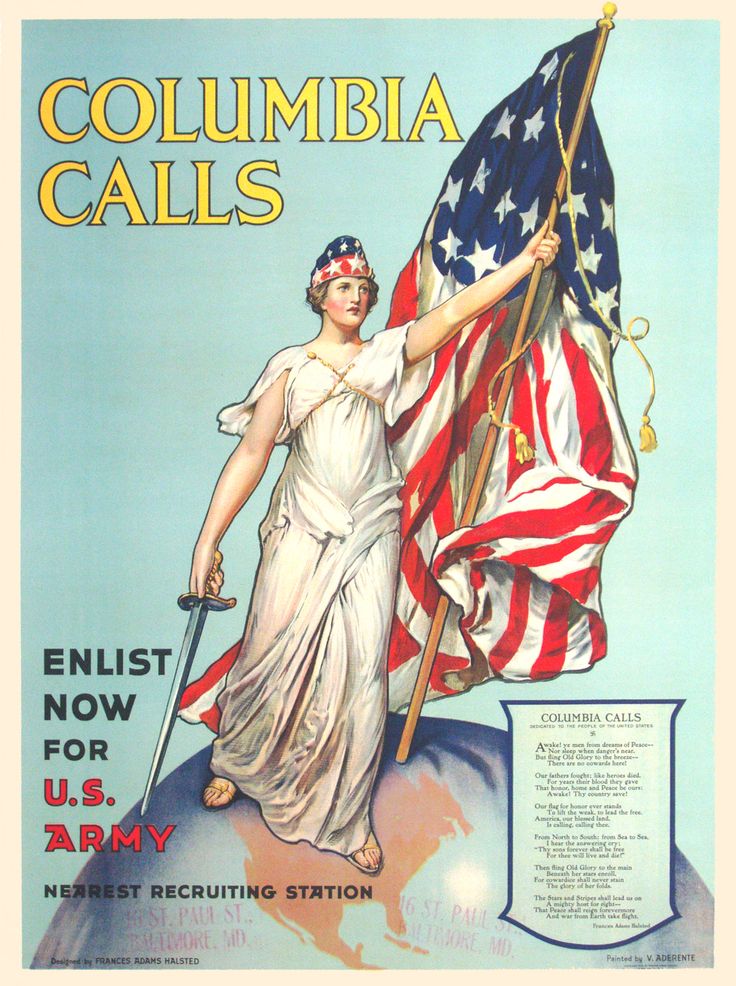
After all Wonder Woman herself was an immigrant to the United States. Her original costume is loaded with American iconography including the American eagle on her chest and the Stars and Stripes theme to her costume. Her visage is highly reminiscent of classic depictions of America’s allegorical figure, Columbia. As Diana Prince, she served as a secretary in the United States Army in Washington, D.C.
As the war ended the comic industry found new genres to explore to remain relevant. These included Romance dramas, Science Fiction, Horror, and Westerns. While revival of patriotic heroes occurred during the 1950’s and 1960’s, many were short lived due to the growing anti war sentiments and self-censoring restrictions adopted by the comic industry, which promoted child friendly stories with minimal violence.
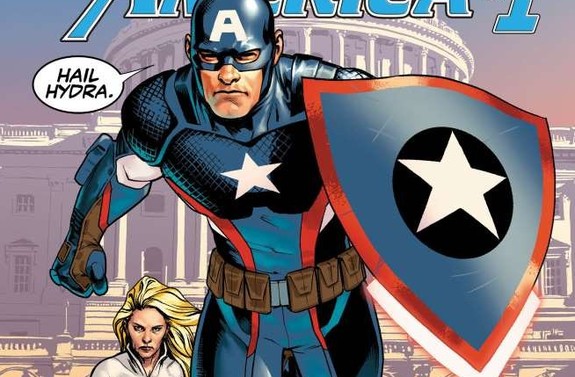
Today many of these heroes have ceased publication, however Captain America, Superman, and Wonder Woman still remain- but different. Their American zeal has been toned down to make the characters more marketable. This means much of their American pride has been de-emphasized in favor of a multinational emphasis, which has been the continuing focus of the comic industry and movie audiences. What remains intact is their core ideal as champions of “Truth, Justice, and all that stuff!”
Joshua H. Stulman
Owner, BrooklynComicShop.com

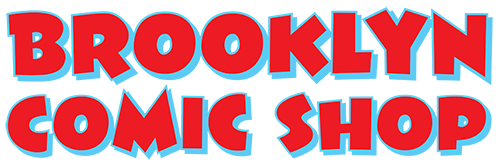
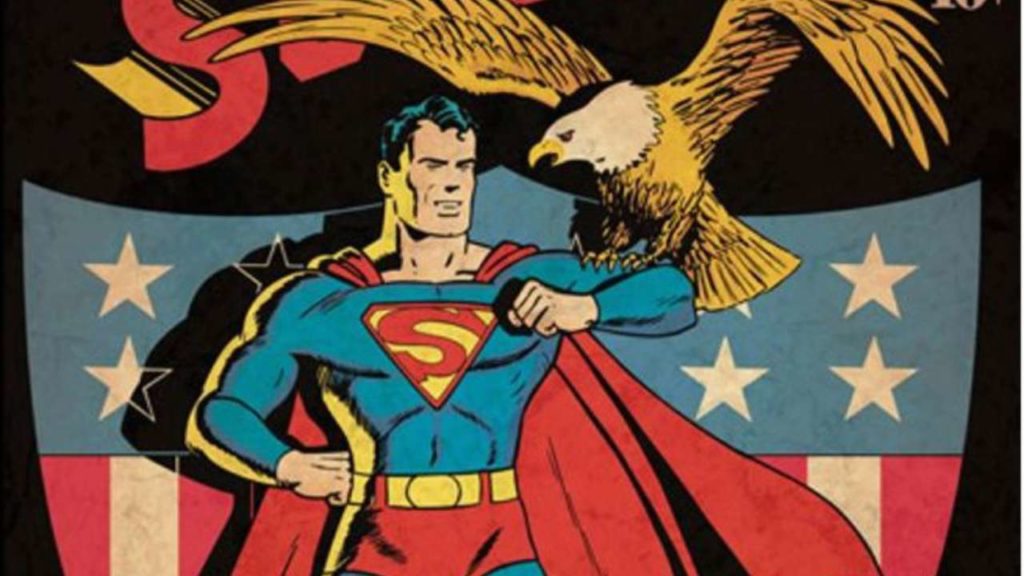
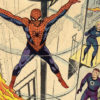

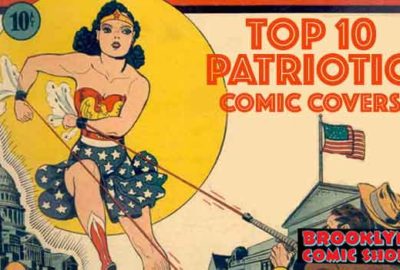
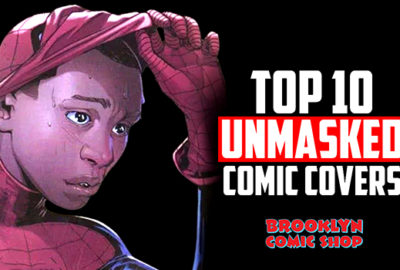
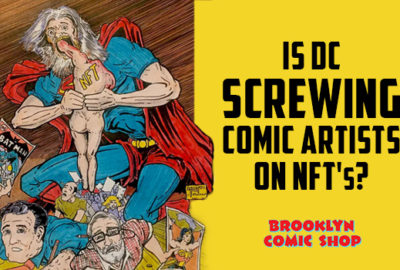
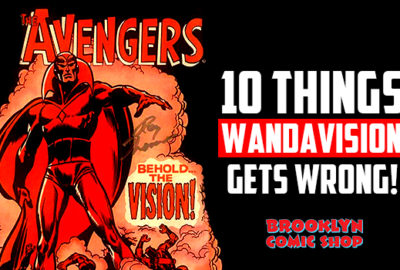
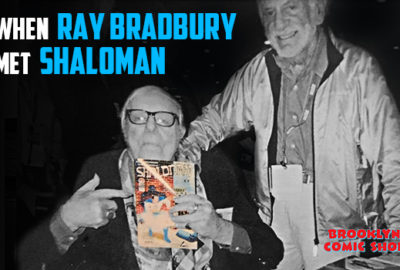

Leave a reply